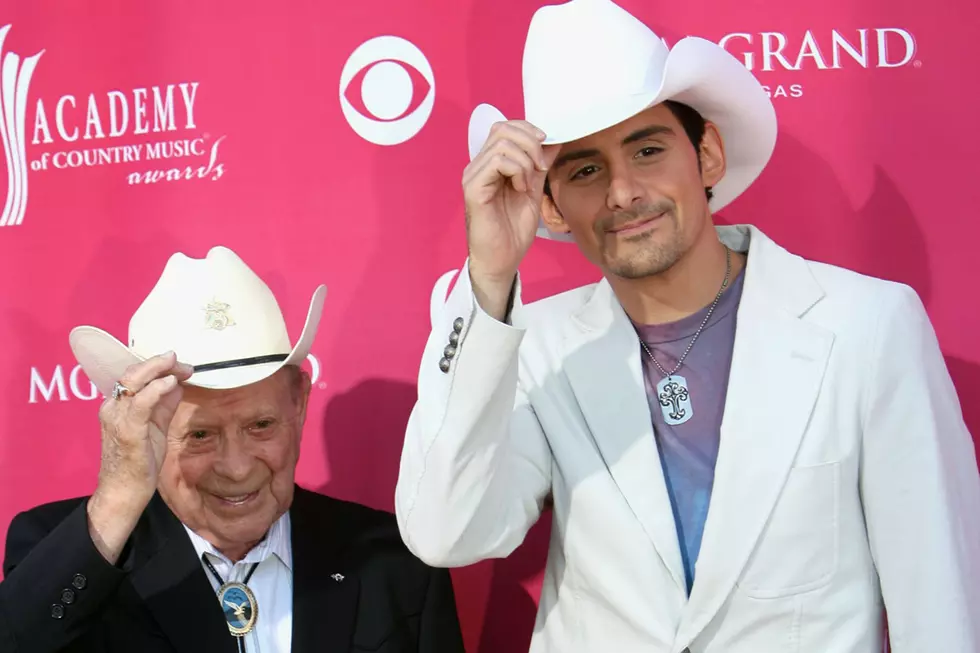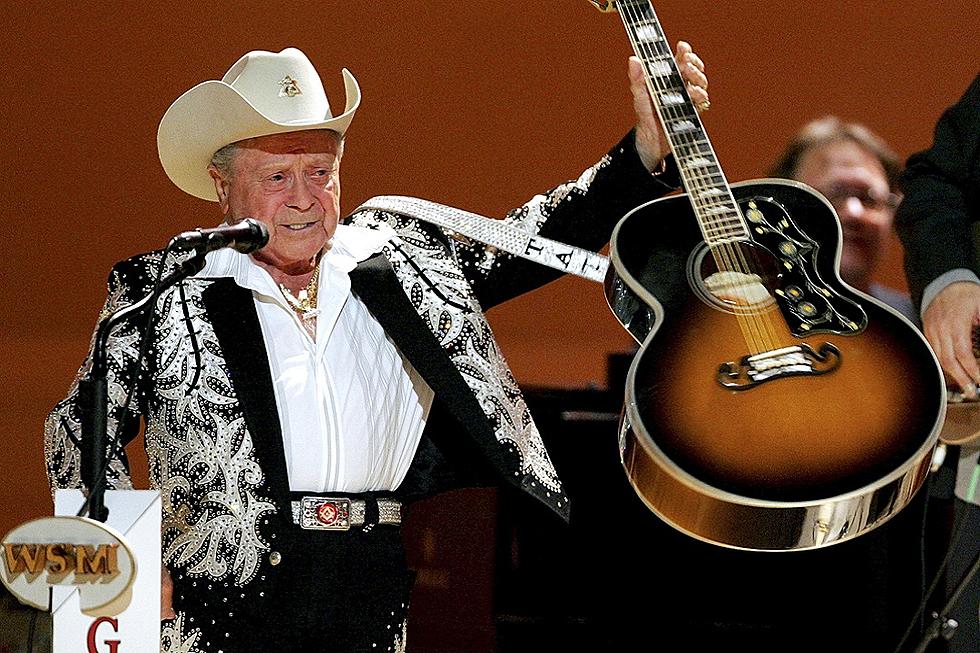Little Jimmy Dickens, Bill Monroe Bronze Statues Unveiled at Ryman Auditorium
On June 7, Brad Paisley and Ricky Skaggs unveiled life-sized bronze statues of Little Jimmy Dickens and Bill Monroe at Nashville's Ryman Auditorium. The statues of Dickens, a Grand Ole Opry star, and Monroe, the "Father of Bluegrass," were commissioned by the Ryman Auditorium in recognition of its 125th anniversary.
Dickens and Monroe -- both Country Music Hall of Famers -- were hugely important to country and bluegrass music, and they were personal inspirations to Paisley and Skaggs, respectively. Their bronze likenesses were created by artist Ben Watts and took one year to create.
Paisley, along with Dickens' widow Mona, unveiled the statue of the 4'11" powerhouse who was behind hits such as "May the Bird of Paradise Fly Up Your Nose" and "Country Boy." During his remarks, Paisley reflected, "This was a man who was honing his craft before Hank Williams, who we sort of credit as the father of modern country music in many ways. He saw everything in those decades that he stood on that stage, like Patsy Cline and Loretta Lynn and Garth Brooks."
Paisley added, "By the time Jimmy left us, he had become the Grand Ole Opry. On a night that he wasn't there, you were cheated out of something and he knew that. He realized when he was well enough to do it, he went. He knew that he owed it to the younger generation that wanted to see him, it was another lesson in how you entertain people. He gave them everything that he had on that stage and in this building for many many years. So I think it's really appropriate that he's going to be one of the statues that's a permanent reminder of what we should be in this building."
Dickens’ statue is on the Ryman plaza. As Paisley noted, the singer was extremely committed to the Opry, and he last performed there days before his death on Jan. 2, 2015.
Skaggs, who was deeply influenced by Monroe and first performed onstage with him in 1960, at the age of six, had the honor of revealing the mandolin player's statue. Monroe's 69-year impact on bluegrass music will never be forgotten; even the genre's name is derived from Monroe's band, the Blue Grass Boys.
"I don't know if you ever get another Bill Monroe in a century," said Skaggs. "There's not a lot of people that I know of who could be cited as creating a whole new genre of music, but he did. He had the ear to hear it, the talent to play it and the heart to keep it alive because he was strong, he was powerful. I don't know any person who could have withstood, pushed through and made it like him. He had music in his veins. It was the thing that pushed him so much. It wasn't just to make a living. It was to get something out of him and take to people that he loved, and that was the fans that loved this music. I have traveled all over the world into places you would think that bluegrass music would never make it to ... and you meet someone there that actually plays the music. So this music has totally gone around the world."
Monroe's replica is located near the Fifth Avenue driveway. He was also a mainstay at the Opry and is most famous for "Blue Moon of Kentucky."
More From KEAN 105










